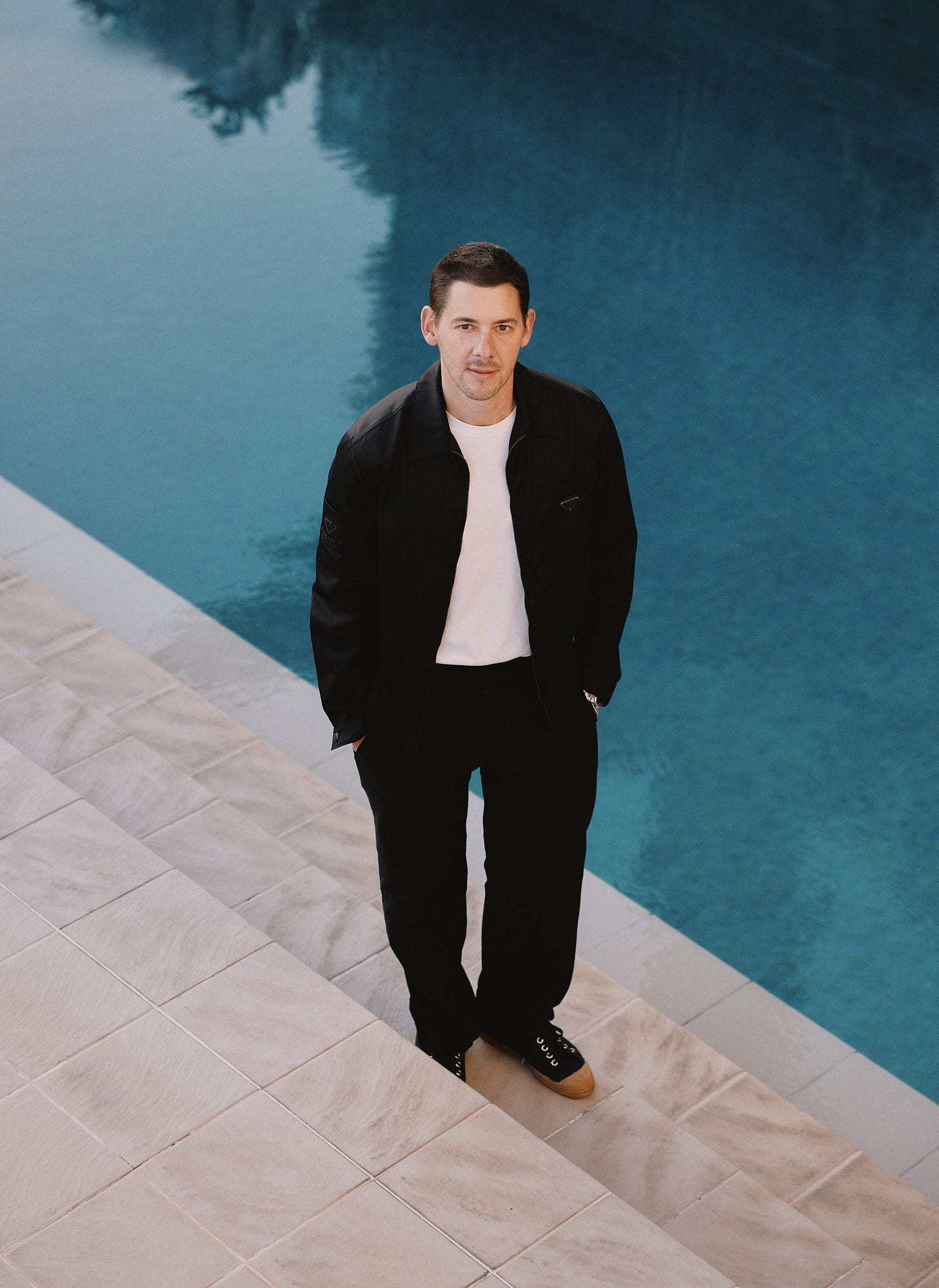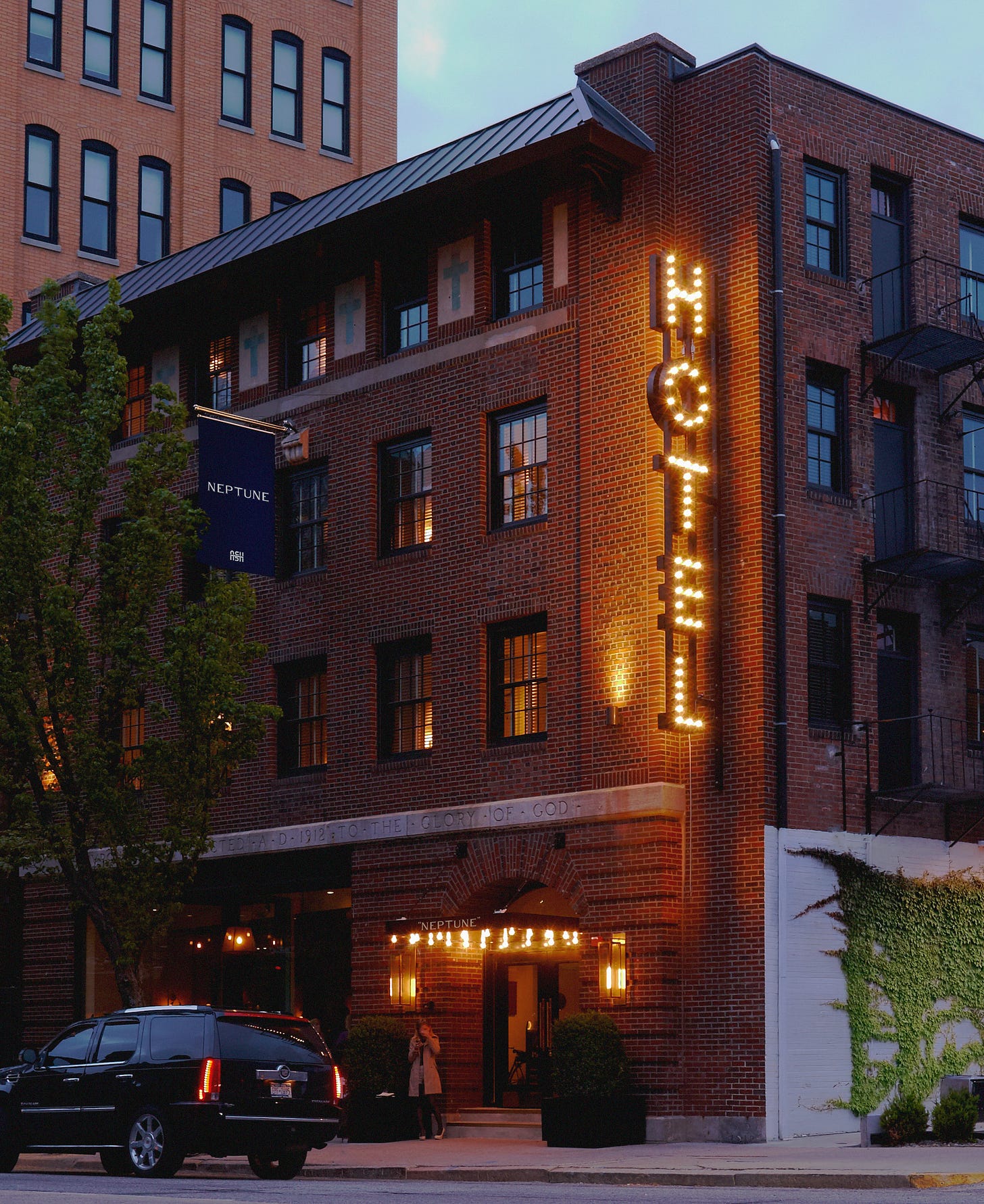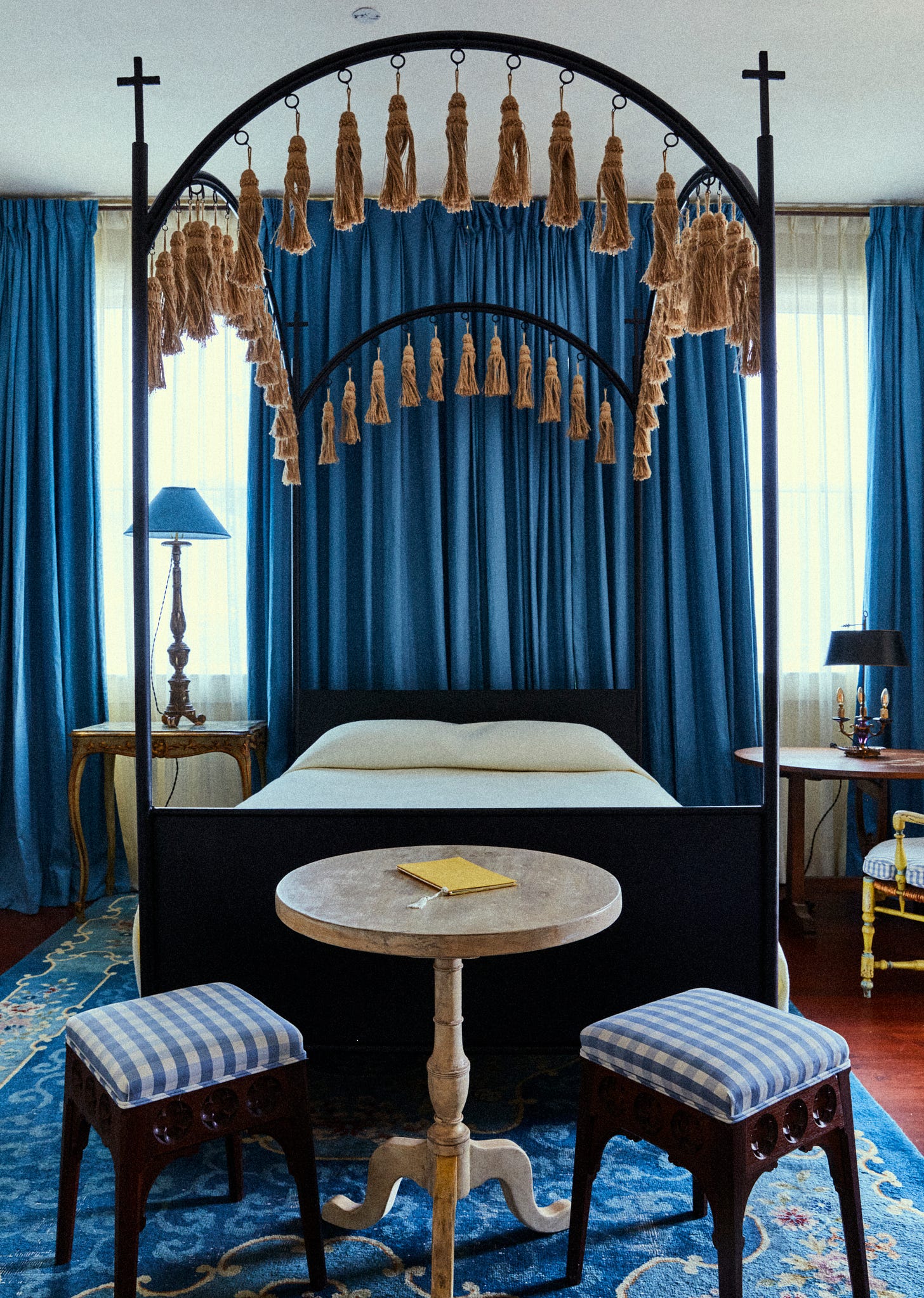The tastemaker: Ari Heckman, Founder, ASH Hotels
Ari Heckman on turning raw instinct into one of hospitality’s most distinctive, cinematic and culturally-fluent brands
Welcome to TOMORROW WILL ARRIVE, a platform for cultural critique and future thinking; offering perspectives on luxury, brand strategy, identity and design. Created by BIRCH, we are a London-based creative studio, founded in 2009. You can reach us here, or join our Subscriber chat here.
There are hoteliers, and then there are world‑builders. Ari Heckman is the latter.
The founder and creative director of ASH didn’t begin with a grand plan, a hotel blueprint, or even a hospitality playbook. He began with instinct. An interesting building here, a charming neighbourhood there; an idea sparked by a quirky typeface from an old sign or antique furniture at a flea market.
Over the past decade‑plus, these instincts have evolved into ASH – a quietly distinctive hospitality brand with a cinematic sensibility, a feel for cultural undercurrents and a refusal to do the same thing twice. Each ASH property lives in two worlds: deeply embedded in the context of its place and history, and also in Heckman’s cultural curiosity.
At BIRCH, we’re drawn to founders like Ari because they work in the same medium we do: brand as a living, breathing universe. His approach rejects the generic, embraces rarity and treats every hotel as a site‑specific creative expression. ASH’s portfolio is proof that hospitality, at its best, is a strategy of feeling – an editorial project played out in rooms, rituals and atmosphere.
We sat down with him during our recent visit to New York; here’s what he had to say.
From serendipity to strategy
On ASH’s origins, philosophy and evolving brand universe
“The name has a bunch of different origin stories. My initials are A.S.H., but coincidentally our first office in New York was on Ash Street in Brooklyn, fifteen-or-so years ago. Plus, the symbolism of ash just works for us. We play with the visual of a volcano a lot – this idea of elemental rebirth.”
“When it all started, I didn’t even have the remotest idea or thought that we were starting a brand. There wasn’t even really a grand plan to get into the hotel business. I was just doing something that was cool and interesting. It wasn’t until around 10 years in that people started to recognise the collection of things we were making had a sort of common philosophy at their heart.”
“The vast majority of real estate projects are created as business ideas by finance guys, or whatever. They aren’t thinking primarily in terms of artistry and soulfulness and brand veracity, you know?”
“I’ve been thinking recently that we create all these individual brands for properties, but more and more, we want people to understand that they’re part of ASH. Now, we spend time thinking ‘okay, we want people to view this property through lens of its own special brand and code, but we don’t want it to overshadow the fact that it’s part of the ASH universe’. So, we’re treating ASH more like a lifestyle brand and point of authority – something that can anchor all our sub brands effectively. Whether that’s our hotel brands, ASH Staging (our design service) or Room Service (our hospitality furnishing and decorating firm).”
“We’ll know when we run out of projects, sites and cities because one day it’ll just happen. There’s no shortage of places we could be – in the US and overseas – and that’s also something we’re starting to look at. So, while there’s no fixed plan for growth, there are also no limits for us.”
Building worlds, not just hotels
The ASH creative process, the need for cultural connection and avoiding the generic
“First and foremost, we want to create wholesome, cinematic experiences. We want you to walk into one of our properties and be moved by it; to feel something. Yes, the interior design is important to that, but so is the creative direction, the story you’re telling and the mood. It all contributes to something that’s kind of like a transportive experience.”
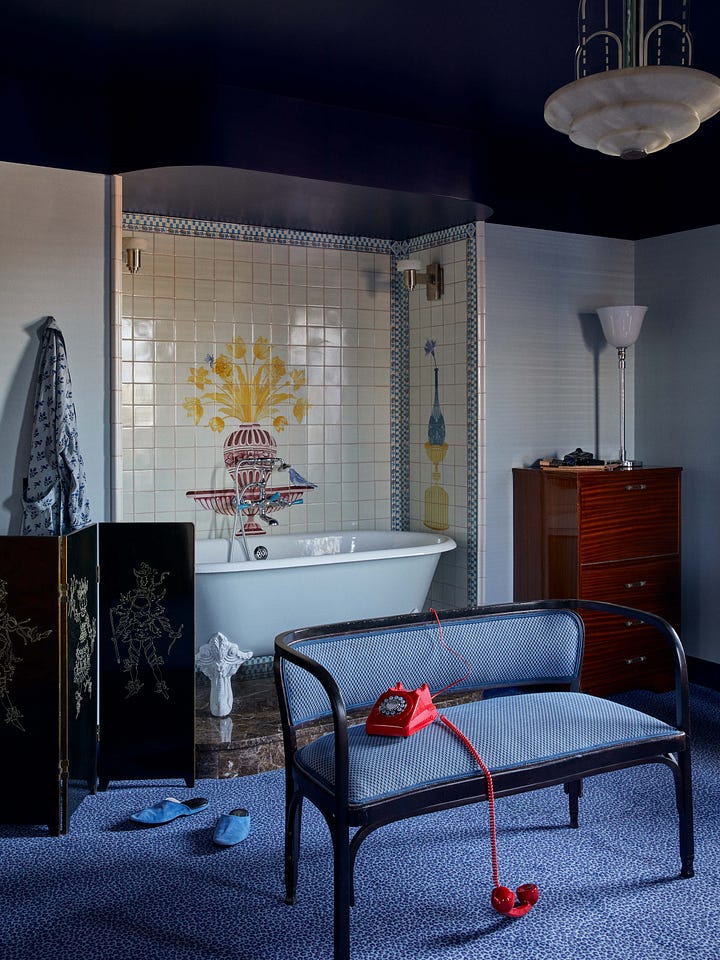
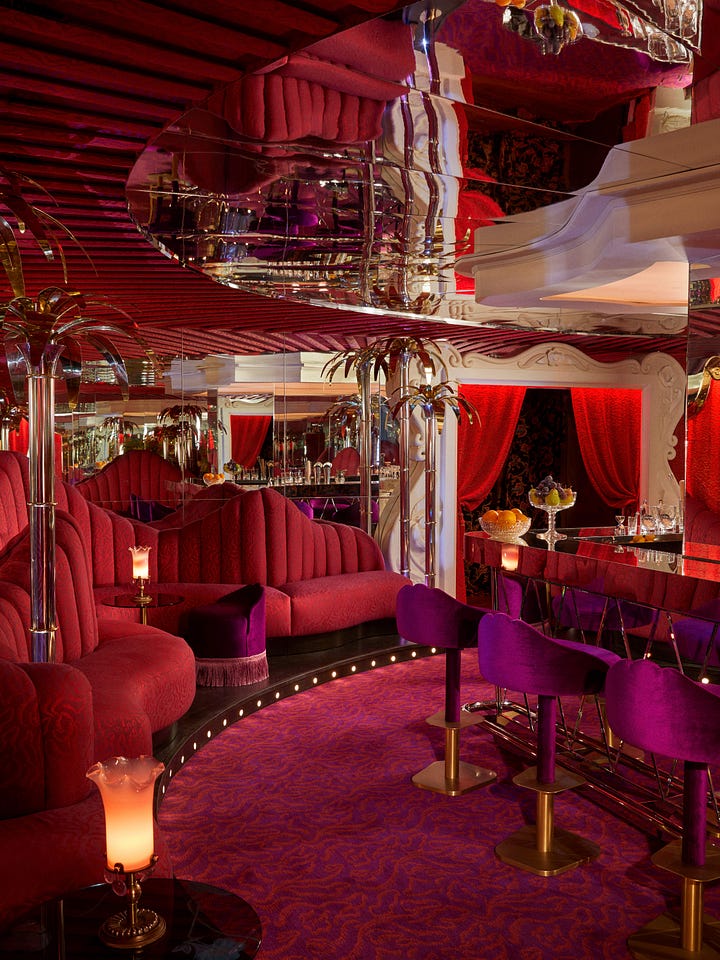
“I’m not interested in doing a retread. I’ve been to so many properties and thought ‘this one isn’t right for us’. It has to be a place that feels like we can do something interesting and add something new to the landscape. We never create the same product twice. If that means putting more research, time and effort into the creation process, that’s cool. We want our properties to be sort of monuments to or establishments of tomorrow.”
“I’m also not interested in creating historical replicas. What we do is fuse together the context and history of a building with the influences we’re thinking about today. Often that comes down to the last movie I saw, or books we’re reading that make us excited and curious.”
“For what we do, it’s essential to be plugged into culture. Otherwise, you’re building something that might be beautiful, but doesn’t actually have any connection to the here and now. We’re not looking to create mausoleums or museums. I’m particularly interested in things that feel antithetical to a luxury hotel experience, like rave culture, for example.”
“When people ask me what inspires me, often its filmmakers like David Lynch, John Waters – people who have succeeded in creating something very beautiful and evocative. But also, a little fucked up and mysterious.”
“What I love about our creative process is that it’s really different to most designers or hoteliers – and so unscientific. It’s really just about feeling our way through how different things come together; like a name, a typeface, some antique furniture, and the feel we get for a neighbourhood, for instance. Those moments of discovery you get when you shape a property that way are really exciting. You can be walking through a flea market in the south of France and find a fountain and think ‘oh, that’s going to be the centrepiece in the bar’ and you didn’t know that till you saw it, but now it makes sense.”
The principles that hold
Ari on defining luxury, serving guests and lessons for building
“You can’t choose your guests. Maybe 25 per cent of your guests come because they feel what you’re doing. The rest just want a hotel in a good location. That’s okay. If we’re lucky, we get to convert a few into fans.”
“A great hospitality experience is composed of three things: Rarity, discovery and a good night’s sleep. True luxury today is finding places or experiences that are truly rare and distinctive. That in turn creates an amazing sense of discovery, which can be super-uplifting and energising. But, when you boil it down, that most mundane thing of ‘hey, you got a good night’s sleep’ is important. It’s the baseline to pass as a hotelier before you do anything else.”
“I try not to regret anything. When I reflect sometimes, I think I just went into things head first – and with naiveté and youth came some great things, but also some things that I wish I’d asked harder questions about. But I try to give myself grace here.”
“If you want to do it and you believe in it, get on and do it. The hardest thing is being able to not be afraid of doing it. There are investors and believers out in the world, ready to help. To paraphrase Teddy Roosevelt’s Man in the arena speech, if you want to have a chance, you have to be in the arena. You can’t be sitting on the sidelines.”
In the margins: Ari recommends
An object: “Any small found antique that you can put on your desk and feel a connection to the past. Also, ASH’s body care collection is pretty great.”
A concept: “Fictional history. Every hotel should feel like it’s lived many lives, even if its brand new.”
A place: “Il Convento di Santa Maria di Costantinopoli in Salento, Italy”
A cultural cue: “David Lynch meets Wes Anderson – but less twee, with more tension.”
A habit: “120 Google Maps lists. Those lists are going to be my legacy.”



